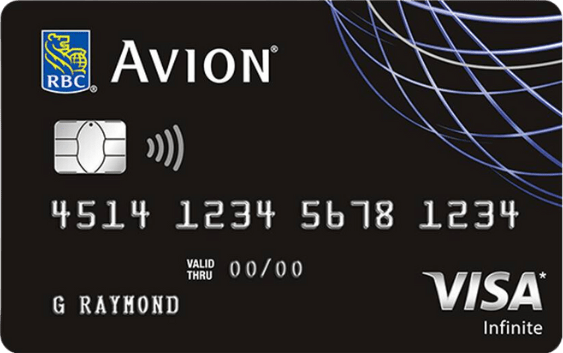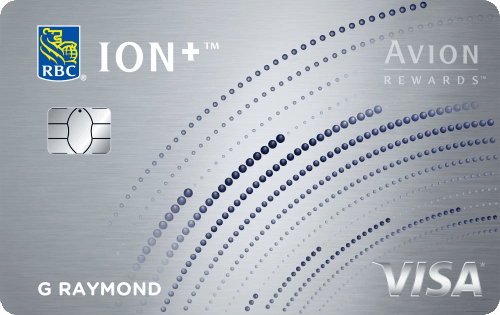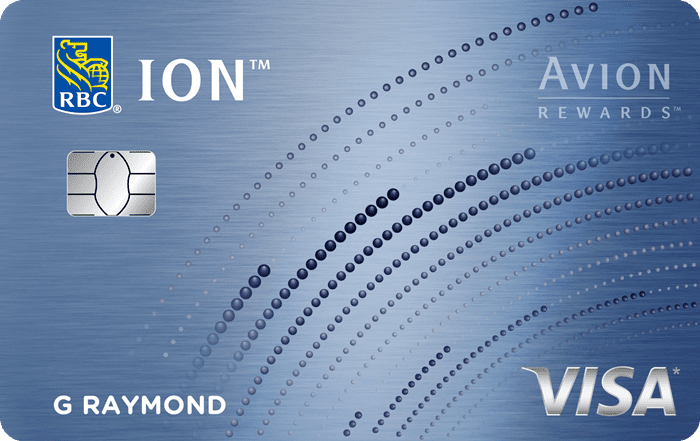RBC Avion Rewards guide 2024
Fact Checked: Scott Birke
Updated: October 23, 2024
RBC Avion is Canada's largest bank-owned rewards program, offering cardholders more ways to shop, earn, save, and redeem than with the old RBC Rewards
What is RBC Avion Rewards?
RBC Avion Rewards, overseen by the Royal Bank of Canada, the biggest of the Big Five banks, is one of the most popular loyalty programs in Canada. Though it offers an impressive variety of redemption options overall, the program is particularly appealing to frequent fliers who covet the bank’s Avion credit cards.
Whether you’re a more casual Avion Rewards earner or a seasoned jet setter, our RBC Avion Rewards guide will help you decide if Avion Rewards is the loyalty program you’ve been looking for, or if you should keep up the hunt for the perfect spending and travel companion.
RBC Rewards becomes RBC Avion Rewards
The Avion program began as RBC Rewards. The RBC Rewards program changed to the Avion program in August 2022, with the new program offering improved ways to earn and redeem points, including transfer partners, exclusive offers with brands like Lyft and more. All you need is an eligible RBC Avion credit card .
Ampli Rewards merges with RBC Avion
Ampli Rewards is the latest program to merge with Avion, making Canada's largest bank-operated program even bigger. The Ampli app was Canada's leading (and free) cash back app that offered cash back (think money, not points) on everyday purchases.
Pros and cons
Pros
-
Flexible program with lots of redemption options
-
Points can be earned with your debit card if you have a qualifying bank account
-
You can convert points to several other participating loyalty programs
Cons
-
Non-Avion credit cards have weak to non-existent welcome bonuses and ho-hum earn rates
-
Must have an Avion credit card to get maximum point value when redeeming for travel
-
Relatively low value for points when redeeming for statement credits
How to earn RBC Avion points
The best way to earn RBC Avion Rewards points is by making purchases with an RBC Avion credit card such as the RBC Avion Visa Infinite and RBC ION+ Visa. Our full list below and summary RBC Avion Rewards chart shows all the RBC credit cards you can use to rack up points and how much they earn.
Earning Avion points with welcome bonuses
The quickest way to earn a bunch of Avion points is by taking advantage of the welcome offers with RBC Avion credit cards. Typically, you'll need to spend a specific amount on your new card within a set time frame to earn a sign-up bonus, usually between 90 days and 6 months.
Here are the current welcome bonuses for RBC Avion credit cards:
| Card | Latest welcome bonus | Learn more |
|---|---|---|
| RBC Avion Visa Infinite Privilege | Get up to 70,000 Avion points* (a travel value of up to $1,500†). Apply by November 25, 2024 | Apply now |
| RBC Avion Visa Infinite | Get up to 55,000 Avion points* (a value of up to $1,100†), that’s enough to fly anywhere in North America or the Caribbean! | Apply now |
| RBC Avion Visa Platinum | Enjoy 35,000 Avion points upon approval1 (travel value of up to $750†) | Apply now |
| RBC ION+ Visa |
Get 12,000 Avion points upon approval^—that’s $80 of value in gift cards! Apply by November 4, 2024 |
Apply now |
| RBC ION Visa | Get 6,000 Avion points | Apply now |
Disclosures
*Refer to RBC page for up to date offer terms and conditions.
Earning Avion points with spending
The easiest way to earn Avion Rewards points is by making purchases with your eligible RBC credit card.
| Card | Base Avion points on purchases | Bonus categories | Learn more |
|---|---|---|---|
| RBC Avion Visa Infinite Privilege | 1.25x | N/A | Apply now |
| RBC Avion Visa Infinite | 1x | 25% extra Avion points on eligible travel purchases (1.25x) | Apply now |
| RBC Avion Visa Platinum | 1x | N/A | Apply now |
| RBC ION+ Visa | 1x | 3 Avion Ion points† on grocery, dining, food delivery, gas, rideshare, public transit, EV charging, streaming, digital gaming and online subscriptions | Apply now |
| RBC ION Visa | 1x | 1.5 Avion points on groceries, transportation (gas, rideshare, transit, EV charging), and streaming services and subscriptions | Apply now |
There's no distinction between the points earned from a standard RBC card vs. an Avion card, like the RBC Avion Visa Infinite. Both cards earn Avion Rewards points—though some Avion cardholders may mistakenly refer to their points as such.
The difference between an Avion card and a standard RBC rewards card is that Avion cards are intended to appeal to those looking specifically for travel rewards cards. Avion cards have higher annual fees, better welcome offers, and feature additional travel-friendly perks (like good travel insurance packages and exclusive experiences). Finally, though both Avion and non-Avion cardholders use the same travel portal to redeem points, Avion cardholders get better value for their points when redeemed for travel.
If you don’t feel comfortable using credit, keep in mind that you can still earn RBC Rewards points with a debit card. If you enroll an eligible RBC bank account (such as the RBC Day to Day Banking or Advantage Banking accounts) in the Value Program you can earn RBC points every time you use your debit card.
The following RBC Royal Bank credit cards earn Avion points on net purchases and are points-earning credit cards:
- RBC Avion Visa Infinite Privilege
- RBC Avion Visa Infinite Privilege for Private Banking
- RBC Avion Visa Infinite
- RBC Avion Visa Platinum
- RBC ION Visa
- RBC ION+ Visa
- RBC Rewards Visa Preferred
- RBC Visa Gold Preferred
- RBC Visa Platinum Preferred
- Signature RBC Rewards Visa
- RBC Rewards Visa Gold
- RBC Rewards+ Visa
- RBC U.S. Dollar Visa Gold
- RBC Visa Classic II
- RBC Visa Classic II Student
- RBC Mike Weir Visa
- RBC Avion Visa Business
- RBC Avion Visa Infinite Business
- RBC Royal Bank Visa CreditLine for Small Business
- RBC Commercial Avion Visa
Disclosures
*Refer to RBC page for up to date offer terms and conditions.
Money.ca may engage in affiliate marketing, which is done by embedding tracking links into Money.ca. If you click on a link for an affiliate partnership, a cookie will be placed on your browser to track any sales for purposes of commissions.
Other ways to earn Avion points
Avion Rewards members can earn even more points when shopping with select Avion partners. RBC Avion Rewards is an impressive selection of special deals for both Avion members and non-members, making it a great way to maximize value for money. These offers fall under two categories: "save & earn" and "Save now."
- Save & earn: Save and earn deals let you earn Avion points. This means these offers are only available to members with an eligible Avion credit card.
- Save now: Save now deals offer discounts instead of points, meaning they are open to anyone.
What are Avion points worth?
How much an RBC Avion point is valued at depends on how you redeem those points. That said, RBC Avion Rewards points have a value of around one cent per point.
Here's how the value of RBC Avion points differs based on how you redeem points:
- Merchandise: $0.006–$0.0085 per point. Point value varies because there’s a wide range of items you can redeem points for, including Bose stereos, Fitbit smartwatches, Cuisinart kitchen appliances, and more. RBC Rewards also has an impressive range of Apple products like MacBook Pro and iPhones.
- Gift Cards: $0.0071–$0.01 per point. When redeeming points for gift cards, points usually have a value of $0.0071 each. However, sometimes RBC Rewards will have special bonuses where the points needed for a redemption are reduced, which gives your points more value. For example, normally you need 1,400 points to redeem for a $10 Amazon.ca gift card but sometimes the same $10 Amazon.ca gift certificate is available for only 1,000 points, bringing your point value up to one cent per point. There is a good selection of gift cards aside from Amazon.ca, including Best Buy, Air Canada, A&W and more.
- Charitable Donations: $0.01 per point. Redemptions can be donated to Hope Air, Own The Podium, Ronald McDonald House Charities, and The David Foster Foundation.
- RBC Financial Reward: $0.0083 per point. You can contribute to your RBC investment portfolio, RBC personal loan, RBC mortgage, RBC line of credit, and more.
- Pay With Points: $0.0058 per point. If you use Pay with Points to pay down your statement credit you get the worst value for your points.
Do RBC Avion points expire?
Avion Rewards points never expire as long as your account remains open and in good standing. However, you’ll have limited time periods to redeem your points after closing your account: 90 days for self-serve, online point redemption and 365 days to redeem by calling in to the RBC advice centre.
What can Avion Rewards be used for?
Avion Points value varies substantially depending on how they are redeemed, and Avoon Rewards can be redeemed for a wide variety of purposes, including travel, merchandise, charitable donations, paying with points and gift cards. You can also use the Avion Rewards ShopPlus browser extension to earn money back when shopping online.
Redeeming points is a straightforward process: Head to the Rewards portal and sign in when you’re ready to redeem. There may be minimum redemption requirements depending on what redemption option you use. For example, there are set point minimums required when you convert points to other loyalty programs, as well as a minimum of 12,000 points needed to redeem points for RBC Financial Rewards.
Redeeming Avion points for travel
When you want to redeem your RBC Rewards for travel, you’ll notice that there’s a different redemption option based on whether you have an RBC Avion card or not.
If you don’t have an Avion card, then your redemption options for travel are very straightforward: 100 points = $1 travel value. To redeem your points for travel you simply sign in to the RBC Rewards Travel page and select a travel purchase. There is no minimum number of points required to redeem for travel, and if you don’t have enough points to cover a full travel redemption you can pay the remaining balance with your credit card.
If you are an Avion cardholder, you can select round-trip flights on any airline based on the Air Travel Redemption Schedule. The number of points you need to redeem depends on your destination, and each destination has a maximum ticket price (not including fees and taxes). If you exceed the maximum ticket price, RBC lets you charge the additional cost to your credit card or pay the difference at a rate of 100 points = $1.
| Points Needed | Region | Max Ticket Price | Max Value Per Point |
|---|---|---|---|
| 15,000 | Within or to an adjacent province, territory, or U.S. state | $350 | $0.0233 |
| 35,000 | From/to anywhere in Canada or U.S. except Hawaii and Alaska | $750 | $0.0214 |
| 45,000 | Western Canada or U.S. to Mexico, Hawaii, Alaska /Eastern Canada to Bermuda, Central America, Caribbean | $900 | $0.02 |
| 55,000 | Eastern Canada or U.S. to Mexico, Hawaii, Alaska /Western Canada to Bermuda, Central America, Caribbean | $1,100 | $0.02 |
| 65,000 | Canada or U.S. to Europe | $1,300 | $0.02 |
| 100,000 | Canada or U.S. to Asia, Australia, New Zealand, South Pacific, Middle East, Africa, South America | $2,000 | $0.02 |
It’s clear from the travel redemption schedule that Avioners get more value for their points when they redeem them for travel compared to non-Avioners. Whereas the value of one point for non-Avioners is locked in at 1 point = 1 cent, Avioner point values range from 2 cents to as high as 2.33 cents per point.
Note that while there are redemption differences between Avion and non-Avion cardholders, there are some important benefits that both cardholders share. Both can redeem their points for a number of different travel-related purchases, such as flights, cruises, vacation packages, hotels, and car rentals. Furthermore, both enjoy no blackouts or seat restrictions when they book their travel. Plus, both can use RBC Rewards points to cover air travel fees and taxes at a rate of 100 points per $1.
Other Avion Rewards redemption options
The Avion Rewards program is incredibly flexible and points can be redeemed for an impressive variety of pursuits outside travel, including merchandise, charitable donations, and gift cards. You can also put points toward an RBC Financial Reward, by transferring them to accounts like an RBC investment portfolio or RESP. Finally, you can take advantage of a relatively new feature called Pay With Points that lets you pay bills, pay down your credit card statement, or even make purchases in-store with an eligible digital wallet app like Google Pay.
RBC Avion transfer partners
Another appealing feature of the Avion Rewards program is that you can transfer your Avion points to a few other participating loyalty programs.
All Avion Rewards cardholders can convert their Avion Rewards points into WestJet dollars and Hudson’s Bay Rewards points. For every 100 RBC Rewards points converted, you receive 1 WestJet dollar (minimum 1,000 pts needed to convert). For every 500 RBC Rewards points converted, you receive 1,000 Hudson’s Bay Rewards points (minimum 500 pts needed).
RBC Avion cardholders have even more conversion options. They can transfer points to the aforementioned programs, but they can also convert RBC Rewards points to other participating travel rewards programs:
- American Airlines (10,000 RBC Rewards points = 7,000 AAdvantage miles)
- Cathay Pacific’s Asia Miles (10,000 RBC Rewards points = 10,000 Asia Miles)
- British Airways (10,000 RBC Rewards points = 10,000 Avios)
Note that all cardholders can also transfer RBC Rewards points to a second RBC Rewards account held in their name. You can also transfer RBC Rewards points to a family member or friend if they have an RBC Rewards account.
Other Avion Rewards program benefits
RBC has point-earning partnerships with both Rexall and Petro-Canada. With Petro-Canada, you earn 20% more RBC Rewards points when you use a linked eligible RBC Rewards credit card to make purchases. You also instantly save 3 cents per litre at Petro-Canada locations. With Rexall, RBC cardholders with a linked debit or credit card earn 50 Be Well points (Rexall’s rewards program) per $1 they spend at Rexall stores.
RBC also has a new partnership with DoorDash that gets eligible cardholders a free DashPass subscription for up to 12 months, as well as unlimited deliveries with no delivery fees on orders over $12.
What are the best RBC Avion credit cards?
RBC Avion Visa Infinite

4.1
55,000 pts
Welcome offerVery Good
Suggested credit scoreGet up to 55,000 Avion points* (a value of up to $1,100†), that’s enough to fly anywhere in North America or the Caribbean!
Expires
Nov 26, 2024
Pros
-
Rewards program is highly flexible, transferable, and includes a slew of non-travel-related reward options
-
Partnerships with other retailers like HBC and Petro-Canada
-
Provides excellent travel insurance
-
New cardholders earn 55,000 welcome Avion points on approval*
-
Solid option for looking for a travel-centric points program
Cons
-
The points-to-dollars ratio is only average and there are few opportunities for accelerated earning.
-
The $120 annual fee isn’t cheap
-
High annual income requirement: Personal: $60,000 or Household: $100,000
Eligibility
Very Good
Recommended Credit Score
$60,000
Required Annual Personal Income
Recommended Credit Score
Very Good
Required Annual Personal Income
$60,000
1.25
Earn 1.25 Avion point for every dollar you spend*.
25%
extra Avion points on eligible travel purchases
$1,500
mobile device insurance
3¢/L
savings on fuel at Petro-Canada and always earn 20% more Avion points
50
Be Well points for every $1 spent on eligible products at Rexall
20%
off at Hertz and earn 3x the Avion points
$0
delivery fees for 12 months from DoorDash
Earn 1.25 Avion point for every dollar you spend*.
1.25
extra Avion points on eligible travel purchases
25%
mobile device insurance
$1,500
savings on fuel at Petro-Canada and always earn 20% more Avion points
3¢/L
Be Well points for every $1 spent on eligible products at Rexall
50
off at Hertz and earn 3x the Avion points
20%
delivery fees for 12 months from DoorDash
$0
20.99%
Purchase APR
22.99%
Balance Transfer Rate
22.99%
Cash Advance APR
$120
Annual Fee $50 for each additional card
2.5%
Foreign Transaction Fee 2.5% of the transaction in CDN
Purchase APR
20.99%
Balance Transfer Rate
22.99%
Cash Advance APR
22.99%
Annual Fee
$120
Foreign Transaction Fee
2.5%
Pros
-
Rewards program is highly flexible, transferable, and includes a slew of non-travel-related reward options
-
Partnerships with other retailers like HBC and Petro-Canada
-
Provides excellent travel insurance
-
New cardholders earn 55,000 welcome Avion points on approval*
-
Solid option for looking for a travel-centric points program
Cons
-
The points-to-dollars ratio is only average and there are few opportunities for accelerated earning.
-
The $120 annual fee isn’t cheap
-
High annual income requirement: Personal: $60,000 or Household: $100,000
Eligibility
Very Good
Recommended Credit Score
$60,000
Required Annual Personal Income
Recommended Credit Score
Very Good
Required Annual Personal Income
$60,000
1.25
Earn 1.25 Avion point for every dollar you spend*.
25%
extra Avion points on eligible travel purchases
$1,500
mobile device insurance
3¢/L
savings on fuel at Petro-Canada and always earn 20% more Avion points
50
Be Well points for every $1 spent on eligible products at Rexall
20%
off at Hertz and earn 3x the Avion points
$0
delivery fees for 12 months from DoorDash
Earn 1.25 Avion point for every dollar you spend*.
1.25
extra Avion points on eligible travel purchases
25%
mobile device insurance
$1,500
savings on fuel at Petro-Canada and always earn 20% more Avion points
3¢/L
Be Well points for every $1 spent on eligible products at Rexall
50
off at Hertz and earn 3x the Avion points
20%
delivery fees for 12 months from DoorDash
$0
20.99%
Purchase APR
22.99%
Balance Transfer Rate
22.99%
Cash Advance APR
$120
Annual Fee $50 for each additional card
2.5%
Foreign Transaction Fee 2.5% of the transaction in CDN
Purchase APR
20.99%
Balance Transfer Rate
22.99%
Cash Advance APR
22.99%
Annual Fee
$120
Foreign Transaction Fee
2.5%
The RBC Avion Visa Infinite is the mid-range offering from RBC Avion but provides its best rewards. The card earns 1.25x Avion points per $1 spent on eligible travel purchases* and 1.00 Avion point per $1 spent on purchases. You can earn even more points when travelling, including 3 Avion points at at Hertz (plus bonus Be Well points when using the card at Rexall).
What makes it a great travel card option is the insurance it provides. From $1,500 worth of mobile phone insurance to $500,000 in travel accident protection the Avion Visa Infinite has you covered.
Disclosures
Refer to RBC page for up to date offer terms and conditions.
This post contains affiliate links. Please read disclaimer for more info.
Disclaimer: Money.ca may engage in affiliate marketing, which is done by embedding tracking links into Money.ca. If you click on a link for an affiliate partnership, a cookie will be placed on your browser to track any sales for purposes of commissions.
RBC ION+ Visa

3.2
12,000 pts
Welcome offerGood
Suggested credit scoreto receive the latest news, tips and offers by email
Pros
-
Decent rewards rate in everyday spending categories.
-
Low monthly fee, (rebated for students with the RBC AdvantageTM Banking Account for students).
-
Perks like mobile device insurance and fuel savings at Petro-Canada.
Cons
-
Complex rewards structure with less valuable Avion points in the ION tier.
-
Limited insurance benefits (but you can pay to add-on travel insurance).
Eligibility
Good
Recommended Credit Score
Recommended Credit Score
Good
3
Avion Ion points† per $1 on qualifying grocery, dining, food delivery, gas, rideshare, public transit, EV charging, streaming, digital gaming and online subscriptions
1
Avion Ion point per $1 on all other purchases
Avion Ion points† per $1 on qualifying grocery, dining, food delivery, gas, rideshare, public transit, EV charging, streaming, digital gaming and online subscriptions
3
Avion Ion point per $1 on all other purchases
1
20.99%
Purchase APR
22.99%
Balance Transfer Rate
22.99%
Cash Advance APR 21.99% for residents of Quebec
$48
Annual Fee $4 per month
2.5%
Foreign Transaction Fee 2.5% of the transaction in CDN
Purchase APR
20.99%
Balance Transfer Rate
22.99%
Cash Advance APR
22.99%
Annual Fee
$48
Foreign Transaction Fee
2.5%
Pros
-
Decent rewards rate in everyday spending categories.
-
Low monthly fee, (rebated for students with the RBC AdvantageTM Banking Account for students).
-
Perks like mobile device insurance and fuel savings at Petro-Canada.
Cons
-
Complex rewards structure with less valuable Avion points in the ION tier.
-
Limited insurance benefits (but you can pay to add-on travel insurance).
Eligibility
Good
Recommended Credit Score
Recommended Credit Score
Good
3
Avion Ion points† per $1 on qualifying grocery, dining, food delivery, gas, rideshare, public transit, EV charging, streaming, digital gaming and online subscriptions
1
Avion Ion point per $1 on all other purchases
Avion Ion points† per $1 on qualifying grocery, dining, food delivery, gas, rideshare, public transit, EV charging, streaming, digital gaming and online subscriptions
3
Avion Ion point per $1 on all other purchases
1
20.99%
Purchase APR
22.99%
Balance Transfer Rate
22.99%
Cash Advance APR 21.99% for residents of Quebec
$48
Annual Fee $4 per month
2.5%
Foreign Transaction Fee 2.5% of the transaction in CDN
Purchase APR
20.99%
Balance Transfer Rate
22.99%
Cash Advance APR
22.99%
Annual Fee
$48
Foreign Transaction Fee
2.5%
The Ion+ is an exceptional rewards card with a modest $4 per month fee (equal to $48 per year). Cardholders earn 3 Avion Ion points† on grocery, dining, food delivery, gas, rideshare, public transit, EV charging, streaming, digital gaming and online subscriptions and 1 Avion Ion point on all other purchases. There's also $1,000 of mobile phone protection included.
Disclosures
Refer to RBC page for up to date offer terms and conditions.
This post contains affiliate links. Please read disclaimer for more info.Disclaimer: Money.ca may engage in affiliate marketing, which is done by embedding tracking links into Money.ca. If you click on a link for an affiliate partnership, a cookie will be placed on your browser to track any sales for purposes of commissions.
RBC ION Visa

2.3
6,000 pts
Welcome offerFair
Suggested credit scoreGet 6,000 Avion points upon approval* - that’s $40 of value in gift cards+! Apply by November 4, 2024.
Pros
-
No annual fee
-
Minimum redemption is only $10
-
DoorDash subscription worth $30
Cons
-
Miserly welcome bonus, valued at less than many cash back bonuses
-
Collects Avion ION points which are worth about half as much as traditional Avion points
-
Pretty “meh” on points collection through daily spending
Eligibility
Fair
Recommended Credit Score
Recommended Credit Score
Fair
1.5x
Avion points for every $1 spent on groceries, transportation (gas, rideshare, transit, EV charging), and streaming services and subscriptions
1
Avion point for every $1 spent on all other qualifying purchases
1
year extension on manufacturer's warranty
90 days
of purchase security protection
3¢/L
savings at Petro-Canada
50
Be Well points at Rexall for every $1 spent
3
month DashPass subscription to enjoy unlimited deliveries with $0 delivery fees from DoorDash.
Avion points for every $1 spent on groceries, transportation (gas, rideshare, transit, EV charging), and streaming services and subscriptions
1.5x
Avion point for every $1 spent on all other qualifying purchases
1
year extension on manufacturer's warranty
1
of purchase security protection
90 days
savings at Petro-Canada
3¢/L
Be Well points at Rexall for every $1 spent
50
month DashPass subscription to enjoy unlimited deliveries with $0 delivery fees from DoorDash.
3
20.99%
Purchase APR
22.99%
Balance Transfer Rate
22.99%
Cash Advance APR
$0
Annual Fee $0 for additional cards
2.5%
Foreign Transaction Fee 2.5% of the transaction in CDN
Purchase APR
20.99%
Balance Transfer Rate
22.99%
Cash Advance APR
22.99%
Annual Fee
$0
Foreign Transaction Fee
2.5%
Pros
-
No annual fee
-
Minimum redemption is only $10
-
DoorDash subscription worth $30
Cons
-
Miserly welcome bonus, valued at less than many cash back bonuses
-
Collects Avion ION points which are worth about half as much as traditional Avion points
-
Pretty “meh” on points collection through daily spending
Eligibility
Fair
Recommended Credit Score
Recommended Credit Score
Fair
1.5x
Avion points for every $1 spent on groceries, transportation (gas, rideshare, transit, EV charging), and streaming services and subscriptions
1
Avion point for every $1 spent on all other qualifying purchases
1
year extension on manufacturer's warranty
90 days
of purchase security protection
3¢/L
savings at Petro-Canada
50
Be Well points at Rexall for every $1 spent
3
month DashPass subscription to enjoy unlimited deliveries with $0 delivery fees from DoorDash.
Avion points for every $1 spent on groceries, transportation (gas, rideshare, transit, EV charging), and streaming services and subscriptions
1.5x
Avion point for every $1 spent on all other qualifying purchases
1
year extension on manufacturer's warranty
1
of purchase security protection
90 days
savings at Petro-Canada
3¢/L
Be Well points at Rexall for every $1 spent
50
month DashPass subscription to enjoy unlimited deliveries with $0 delivery fees from DoorDash.
3
20.99%
Purchase APR
22.99%
Balance Transfer Rate
22.99%
Cash Advance APR
$0
Annual Fee $0 for additional cards
2.5%
Foreign Transaction Fee 2.5% of the transaction in CDN
Purchase APR
20.99%
Balance Transfer Rate
22.99%
Cash Advance APR
22.99%
Annual Fee
$0
Foreign Transaction Fee
2.5%
The RBC Ion Visa is one of the best no annual fee credit cards on the market in Canada. For no fee cardholders earn 1.5 Avion points on groceries, transportation (gas, rideshare, transit, EV charging), and streaming services and subscriptions and 1 Avion point on all other purchases, plus enjoy a decent 6,000 Avion points welcome bonus.
Disclosures
- Refer to RBC page for up to date offer terms and conditions.This post contains affiliate links. Please read disclaimer for more info.
MORE: Best RBC credit cards in Canada 2024
Is RBC Avion Rewards the best travel program in Canada?
So how does RBC stack up? To get a sense of how competitive the RBC Avion Rewards program is, it’s helpful to compare it to the two other most popular travel rewards programs in Canada: Aeroplan and AIR MILES.
The new Aeroplan flight award chart features dynamic pricing, so the value you get for an Aeroplan point depends on numerous factors like flight distance, exact destination, and route popularity. Since Aeroplan recently revamped its program, point values now generally range anywhere from about 1.5 cents per point to as high as 2 cents, which is a lower range than the travel redemption values for Avion cardholders. Unlike Avion, Aeroplan points cannot be transferred to other loyalty programs, but you can transfer points from some other loyalty programs to Aeroplan. That said, there’s a larger selection of Aeroplan credit cards issued by multiple financial institutions (TD, CIBC, and Amex) and they tend to feature more travel perks than Avion cards, including the likes of free checked bags, NEXUS application rebates, and free airport lounge visits.
AIR MILES, while not strictly a travel reward program, gives you the best (if not the most consistent) value when you redeem them for travel. Value ranges anywhere between 8 to 25 cents a point, depending on when and where you fly. However, AIR MILES are slow to add up because AIR MILES credit cards typically only earn 1 MILE per $5–$25 you spend, depending on the card. It’s also worth noting that unlike with RBC, the values for Aeroplan points and AIR MILES don’t change based on which credit card they were earned with. So although an entry-level Aeroplan or AIR MILES card might earn points at a slower rate than a card with a high annual fee, the ‘class’ of the card doesn’t affect how much its points are worth when it’s time to redeem.
Summary
All told, I recommend RBC Avion Rewards to those who meet the income and credit score requirements for an Avion card, and who are willing to pay an Avion card’s annual fee for access to its high-value point redemptions. Avion is particularly appealing for those who find themselves making a lot of short-haul flights within Canada or to nearby U.S. states, for which your points get exceptional value. It’s also a great option if you fly frequently with American Airlines, Cathay Pacific, or British Airways, and you like the flexibility of transferring your points to one of those loyalty programs in order to maximize value and get free flights.
On the other hand, if you only qualify for an entry-level, non-Avion card, there are other travel rewards programs or even cash back credit cards out there that might offer more sign-up bonus points, better regular earn rates, and better value for your points.
FAQs

Sandra MacGregor has been writing about finance and travel for nearly a decade. Her work has appeared in a variety of publications like the New York Times, the UK Telegraph, the Washington Post, Forbes.com and the Toronto Star.

Cory Santos is a finance writer, editor and credit card expert with nearly a decade of experience in personal finance. Cory joined Wise Publishing from BestCards, with bylines in numerous print and digital publications across North America, including the Miami Herald, St. Louis Post-Dispatch, Debt.ca, AOL, MSN and Medium as well as financial podcasts like KOFE Talk.
More rewards programs
RBC Credit Cards
Disclaimer
The content provided on Money.ca is information to help users become financially literate. It is neither tax nor legal advice, is not intended to be relied upon as a forecast, research or investment advice, and is not a recommendation, offer or solicitation to buy or sell any securities or to adopt any investment strategy. Tax, investment and all other decisions should be made, as appropriate, only with guidance from a qualified professional. We make no representation or warranty of any kind, either express or implied, with respect to the data provided, the timeliness thereof, the results to be obtained by the use thereof or any other matter. Advertisers are not responsible for the content of this site, including any editorials or reviews that may appear on this site. For complete and current information on any advertiser product, please visit their website.





